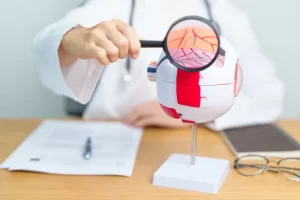
Regular women’s health screening can help to spot early warning signs of disease or illness. Heart condition, diabetes and a few cancers can often be picked up in their early stages, when treatment could also be more successful. Once you have a check, your doctor will ask you about your medical record, your family’s history of disease and your lifestyle.
Your diet, weight, what proportion you exercise, and whether or not you smoke and drink alcohol or take illegal drugs also will be discussed. If you’ve got high-risk factors, like a case history of a condition, it’s going to be more likely that you simply will develop a specific disease. Regular checks may help your doctor devour early warning signs. If you’ve got a high risk of a specific health condition, your doctor may recommend more frequent health checks at an earlier age.
The first test for a woman is to check her diabetes health that includes a fasting blood glucose level test, which measures the quantity of glucose within the blood after fasting (not eating for an amount of time). It’s usually done before you’ve got breakfast. Counting on your risk level, you’ll get to be tested annually or once every three years.
Besides that, a health test for bowel cancer in women is additionally done. The faecal occult biopsy (FOBT) uses chemicals to see a bowel motion sample for blood, which can be a symbol of bowel cancer. If you’re over 50, you ought to have this test once every two years, or after you switch 40 if you’ve got a case history. Women who are at high risk of bowel cancer may have a colonoscopy every five years. During this test, the doctor inserts a slender instrument called a colonoscopy through the anus to visually check the rectum and enormous bowel for any abnormalities.
Advancing age may be a significant risk factor for osteoporosis in ladies due to their hormones and menstrual cycle. A bone density test helps to work out the health of your bones. Generally speaking, women over the age of fifty should be assessed for the necessity to possess a bone density test. Furthermore, women would need to choose carcinoma screening. It’s recommended that ladies between the ages of 50–69 years attend screening mammograms. There’s evidence that clinical examination or self-examination offers health benefits to women.
The Pap test has been replaced with a replacement Cervical Screening Test (CST) every five years for women. The CST is safe, more accurate and detects human papilloma virus (HPV) infection, the best explanation for cervical cancer. Your first CST is due at 25 years of age or two years after your last Pap test. If your results are normal you’ll flow from in five years to possess your next test. Albeit you’ve been vaccinated against HPV, you ought to still have regular screening because the vaccine doesn’t protect against all kinds of HPV infection known to cause cervical cancer. If you’re sexually active, you ought to get tested for chlamydia per annum between the ages of 15 and 29, employing a simple urine test. Chlamydia is extremely common and doesn’t always show symptoms. If you’re in danger of other sexually transmissible infections, like HIV/AIDS or herpes, ask your doctor about further testing.
Your GP can also recommend other tests supporting your case history, your medical record or current symptoms. Counting on the results of these tests, your doctor may then want to supply a course of treatment, investigate further or refer you to a specialist for diagnosis and treatment.







